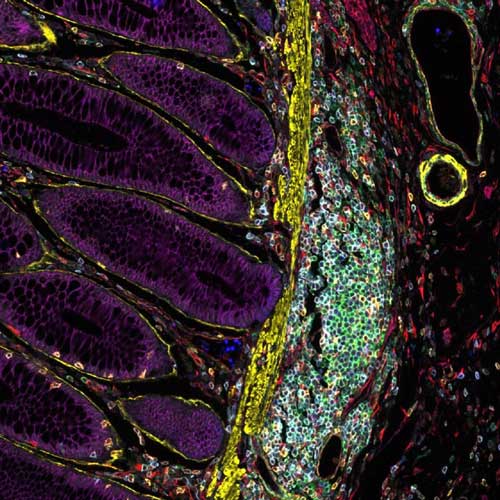See the Hidden: Translational Cancer Research
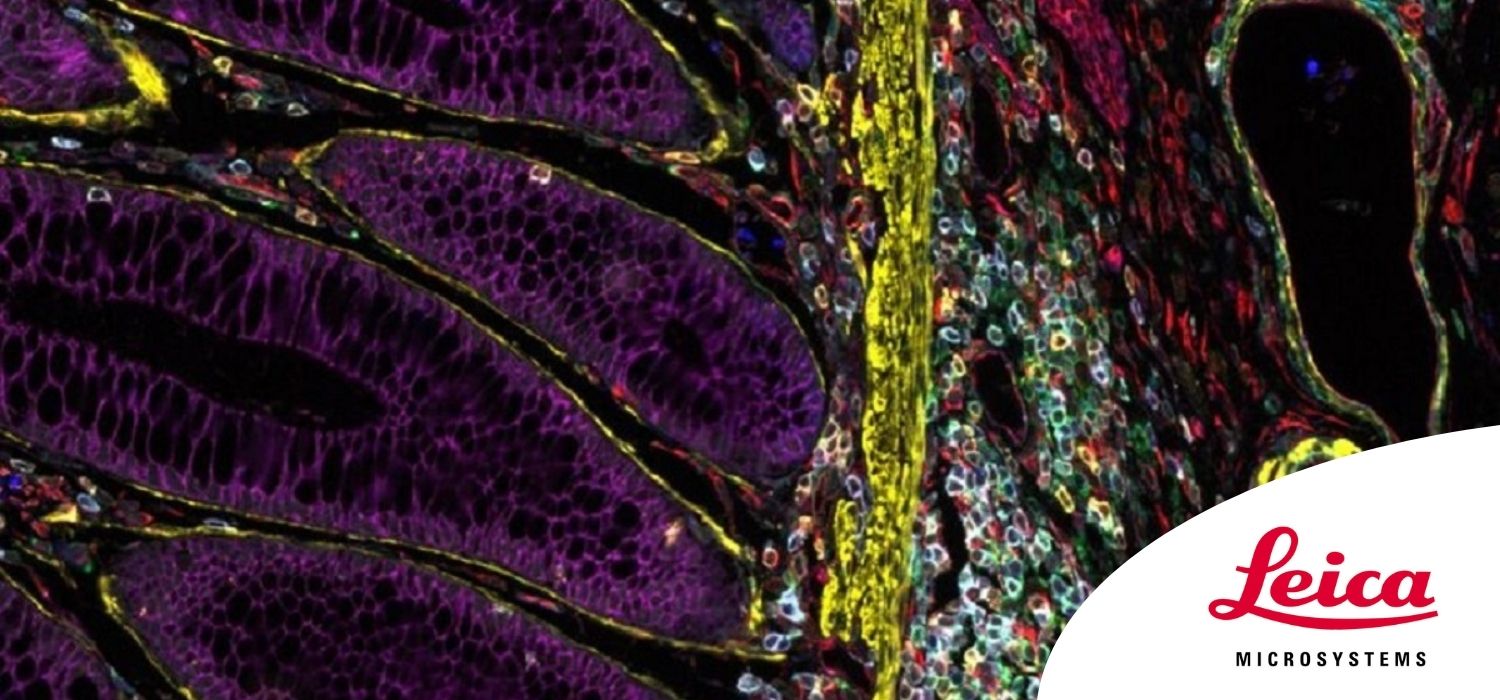
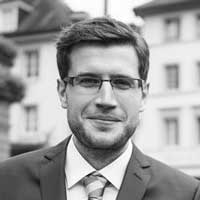
Dr Falco Krüger
Leica Microsystems
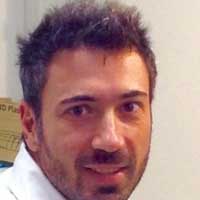
Dr Giuseppe Riccardo Diaferia
IEO Research
Read BioGiuseppe obtained an MSc in Medical Biotechnologies and PhD in Molecular Medicine at the University of Milan. He developed a solid theoretical and technical background in developmental biology during his PhD training at the National Council of Researches in Milan and at the University of California San Diego, UCSD (USA), where he continued to work on pancreatic development in health and disease. In Italy, he focused his research on pancreatic tumor grading by reverse epigenomic approaches at Humanitas University and the European Institute of Oncology in Milan. His research interests currently focus on studying the molecular basis of pancreatic cancer heterogeneity and its clinical implications. I am also a member of the Italian Pancreatic Cancer Community (IPCC) that brings together all the young Italian scientists involved in this field and some no-profit patient organizations to foster collaborations among researchers and raise awareness on this aggressive cancer.
Close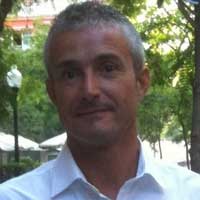
Dr Mauro Baron
Leica Microsystems
Read BioMauro joined Leica Microsystems Italy in 2000 as Product Manager Microscopy covering all aspects of microscopy applications, particularly those related to Laser Microdissection (LMD). In 2009, he became European Field Support Specialist for the Life Science Research Division, primarily responsible for all microdissection-related topics in Europe.
Close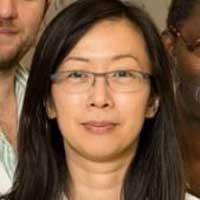
Dr Alison Cheung
Sunnybrook Research Institute
Read BioAlison completed her PhD training at the Department of Medical Biophysics, University of Toronto, studying the role of breast cancer gene BRCA2 in cancer development. After her PhD, she continued her research work at Sunnybrook Research Institute and Princess Margaret Hospital in Toronto, focusing on monitoring cancer progression and therapeutic response in preclinical models using imaging. Alison is currently a research associate at the Biomarker Imaging Research Laboratory led by Dr. Martin Yaffe at the Sunnybrook Research Institute. Her research interests include the quantitative analysis of high-dimensional data in protein multiplexing to examine cellular and spatial heterogeneity in cancer, and the integration of radiological imaging features and molecular signatures to improve disease characterization.
Close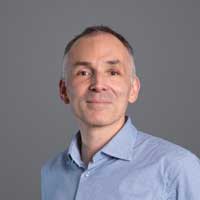
Dr David Pointu
Leica Microsystems
Read BioDavid Pointu has been application manager for Cell DIVE and translational research at Leica Microsystems since 2021 and has broad experience in light microscopy, including various aspects of cell and tissue imaging and analysis. After studying physical chemistry at the University of Strasbourg, he completed his PhD in 2002, followed by a postdoctoral fellowship at the Institut Curie. In 2004 he moved into industry, and has worked as an application specialist in high-end microscopy at several companies, including GE Healthcare.
Close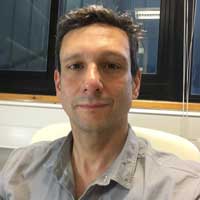
Dr Manolis Papamichos Chronakis
University of Liverpool
Read BioManolis gained a PhD in Molecular Biology at the University of Crete / IMBB, followed by a postdoctoral fellowship at the University of Massachusetts Medical School. In 2010, he became Appointed Group Leader at Curie Institute, and then joined the University of Newcastle as a Research Fellow in 2015. In 2020 he was appointed as Lecturer at the University of Liverpool. Manolis’ research interests include how chromosome structure controls genome function and stability and how its dysregulation can lead to cancer. Specifically, he aims to understand how chromatin is integrated into the gene regulatory and genome stability networks, promoting DNA replication and gene expression. Using a combination of functional genomics, single-cell imaging, and high-throughput technologies in budding yeast and human cells, he aims to illuminate the interplay between the multiple machineries that keep our genome intact and maintain its functionality and the chromatin structure of DNA.
Close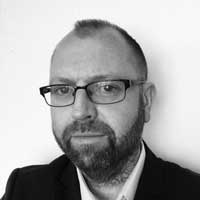
Mr Paul McCormick
Leica Microsystems
Read BioPaul is the Advanced Workflow Manager at Leica Microsystems (UK). The Advanced Workflow Specialist Team are application experts in all things microscopy related. Working across the whole EMEA region, they specialize in confocal and widefield microscopy and sample preparation techniques specifically for life science research. Their mission is to work alongside scientists, providing guidance and helping to share knowledge throughout the microscopy community via webinars, workshops, and training programs across a wide variety of disciplines, from live-cell microscopy, through to lifetime measurements and deep tissue imaging all the way down to super-resolution and CLEM microscopy applications. The team’s proximity to real science means they are ideally placed to facilitate the development of new technologies and help integrate new innovations into research the environment as quickly as possible.
Close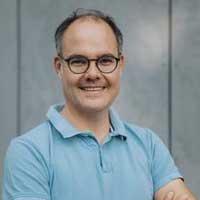
Dr Jan De Bock
Leica Microsystems
Read BioJan studied biology and gained his PhD in the field of olfaction, characterizing olfactory neurons in their response to odorants. He has worked as a microscopy expert in different roles since 2003. He joined Leica Microsystems in 2011 as a product specialist for confocal microscopy. In 2017, he became a member of the newly formed Workflow and Application Team responsible for correlative workflows, in particular involving sample preparation and imaging under cryogenic conditions.
CloseUnderstanding cancer biology has become increasingly dependent on imaging. High-resolution imaging is vital for studying genetic and cell signaling changes that underlie cancer, whereas live-cell imaging is crucial for a deeper understanding of disease mechanisms. Microscopy techniques are also essential for the study of spatial relationships between different types of tumor cells. They are also critical to understanding the immune system’s role in combating cancerous cells. For the latter, researchers rely on multiplexing imaging solutions for a faster rate of discovery.
Leica Microsystems is pleased to invite you to the 3rd Virtual Edition of our See the Hidden Workshop, this time focused on Translational Cancer Research, hosted by Microscopy Focus. The workshop is centered on scientific sessions covering a broad range of first-hand applications of our workflows, encompassing sample preparation, multiplexing, imaging, and analysis. In addition, participants will have the opportunity to join instrument demonstrations and Q&A discussions.
This is an excellent opportunity to hear from leading researchers and industry experts, to learn about the innovative imaging systems and workflows that are available in order to address the critical challenge of tumor heterogeneity, to gain a deeper understanding of the mechanisms of cancer development, and translate these discoveries into information that can be used to advance therapeutics.
Click here to download the original agenda with complete abstracts.
